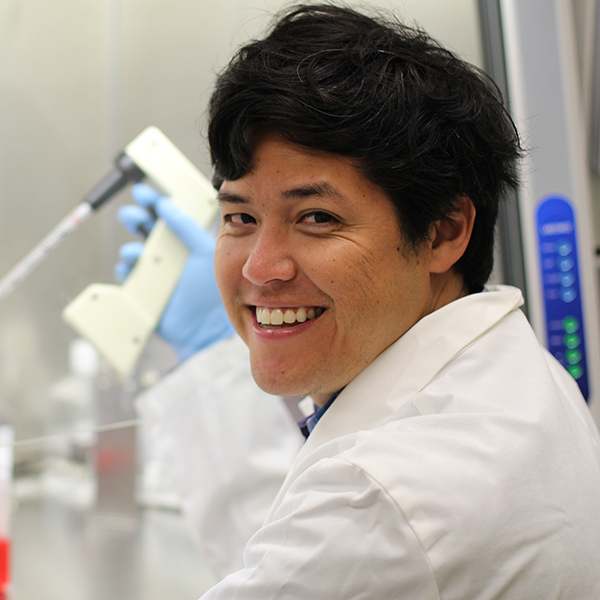
Justin Ichida started young on his path to becoming a scientist. He was in seventh grade when he discovered his passion for genetics through the pages of Michael Crichton’s Jurassic Park.
“It’s even the same type of biology that I do now,” says Ichida, now an assistant professor at the Eli and Edythe Broad Center for Regenerative Medicine and Stem Cell Research at USC. “They were basically reprogramming DNA to make it into the whole animal, and we’re basically just reprogramming cells from one cell to another.”
The son of a lawyer and a real estate agent, he attended ‘Iolani School, Barack Obama’s cross-town rival in Honolulu, Hawai’i.
He studied microbiology and molecular genetics as an undergraduate at UCLA, where he worked in several labs, served as president of the Hawai’i club and performed hula at events all over Los Angeles.
As a genetics PhD candidate at Harvard Medical School, he found himself studying something even more ancient than dinosaurs in the lab of Nobel Laureate Jack Szostak, PhD.
“My mentor in graduate school had outlined the biggest question possible in science: What is the origin of life?” explains Ichida.
He worked on his recipe for primordial soup and cooked up with what was likely a key ingredient: a proto-DNA called Threose Nucleic Acid, or TNA.
For his post-doc, Ichida decided to focus his energies on something further along on the evolutionary timescale: human cells.
In 2007, he helped identify ways to make induced pluripotent stem (iPS) cells by using chemicals instead of the transgenic viruses that had been previously used. Transgenic viruses tend to introduce genes that aren’t normally expressed in a cell, which can alter its behavior. Using chemicals avoids this problem.
His next project was to directly reprogram skin cells into motor neurons.
This technology forms the foundation of his current research at USC: testing drug-like compounds on motor neurons formed by directly reprogramming skin cells from patients with amyotrophic lateral sclerosis (ALS), or Lou Gehrig’s disease. Because these motor neurons have the same DNA as the individual ALS patients, they exhibit the disease’s signature degeneration, which causes progressive paralysis usually resulting in fatal respiratory failure within three to five years of diagnosis. The hope is that one of these compounds will keep the motor neurons alive in the petri dishes — and eventually in the patients.
The principal investigator conducts this research at in his own lab as well as at USC’s new Choi Family Therapeutic Screening Facility. He spearheads this state-of-the-art facility, which will be used by researchers from USC and beyond to conduct important screens that could lead to the discovery and development of new drugs and therapies for patients.
“I just want to do something that really changes people’s lives,” says Ichida. “At this point, I think it would be coming up with therapies that can help people manage ALS. If we could do that, I would be happy. Aside from that, anything else is just a bonus.”
